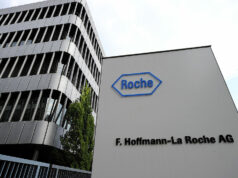
A drug under development for the blood cancer multiple myeloma has posted positive Phase III data, its developer said Tuesday.
Paris-based drugmaker Sanofi said the registration-directed Phase III ICARIA-MM study of the drug, isatuximab, had met its primary endpoint of extending progression-free survival in patients with relapsed or refractory multiple myeloma, the second most common blood cancer. However, the company did include details of the data in its announcement.
The study enrolled 307 patients in 24 countries, who were randomized to receive Celgene’s Pomalyst (pomalidomide) and the steroid dexamethasone – a common “backbone” treatment for the disease – with or without isatuximab. Bristol-Myers Squibb said last month that it would acquire Celgene for $74 billion.
Sanofi said it plans to submit the data for presentation at an “upcoming medical meeting.” Major cancer conferences taking place in the near term include the American Association for Cancer Research’s annual conference in late March; the American Society of Clinical Oncology’s annual meeting in June; and the European Hematology Association’s annual meeting, also in June. Shares of the drugmaker have traded up slightly on the Euronext Paris exchange since the announcement.
But the bigger question is how isatuximab, if approved, might fare in the competitive landscape. The drug is a monoclonal antibody that targets CD38, the same antigen target of Janssen’s Darzalex (daratumumab), which has already been approved for multiple myeloma for several years, including in combination with Pomalyst and dexamethasone. Meanwhile, German drugmaker MorphoSys said in August 2018 that it would stop developing its own CD38-targeting monoclonal antibody, MOR202, after the completion of its Phase I/II study, instead handing it off to partner I-Mab, which is developing it for the Chinese market.
Darzalex has been on the market since 2014 and, during its development, was touted by myeloma specialists as a “Rituxan of myeloma,” an allusion to the key role that Roche’s CD20-targeting monoclonal antibody plays in the treatment of lymphomas. Darzalex’s global sales in the third quarter of 2018 reached $498 million, and $1.4 billion for the first nine months of last year, according to parent company Johnson & Johnson’s financial filings.
One potential advantage for isatuximab is that it Sanofi has Phase III data showing an improvement in progression-free survival, the median amount of time patients survive on a treatment without their disease worsening and a key indicator of a drug’s efficacy in multiple myeloma. By contrast, despite its better-established position on the market, Darzalex’s approval in combination with Pomalyst and dexamethasone was based on Phase I data from among 103 patients that only showed an improvement in overall response rate, a surrogate for the stronger and more standard PFS.
Nevertheless, a Phase III study in Europe, sponsored by academia and with cosponsorship from Janssen, is currently underway that also tests Darzalex with Pomalyst and dexamethasone. Both that study, EMN14, and ICARIA-MM have enrolled patients who failed Celgene’s Revlimid (lenalidomide) and a proteasome inhibitor.
Photo: Sanofi








